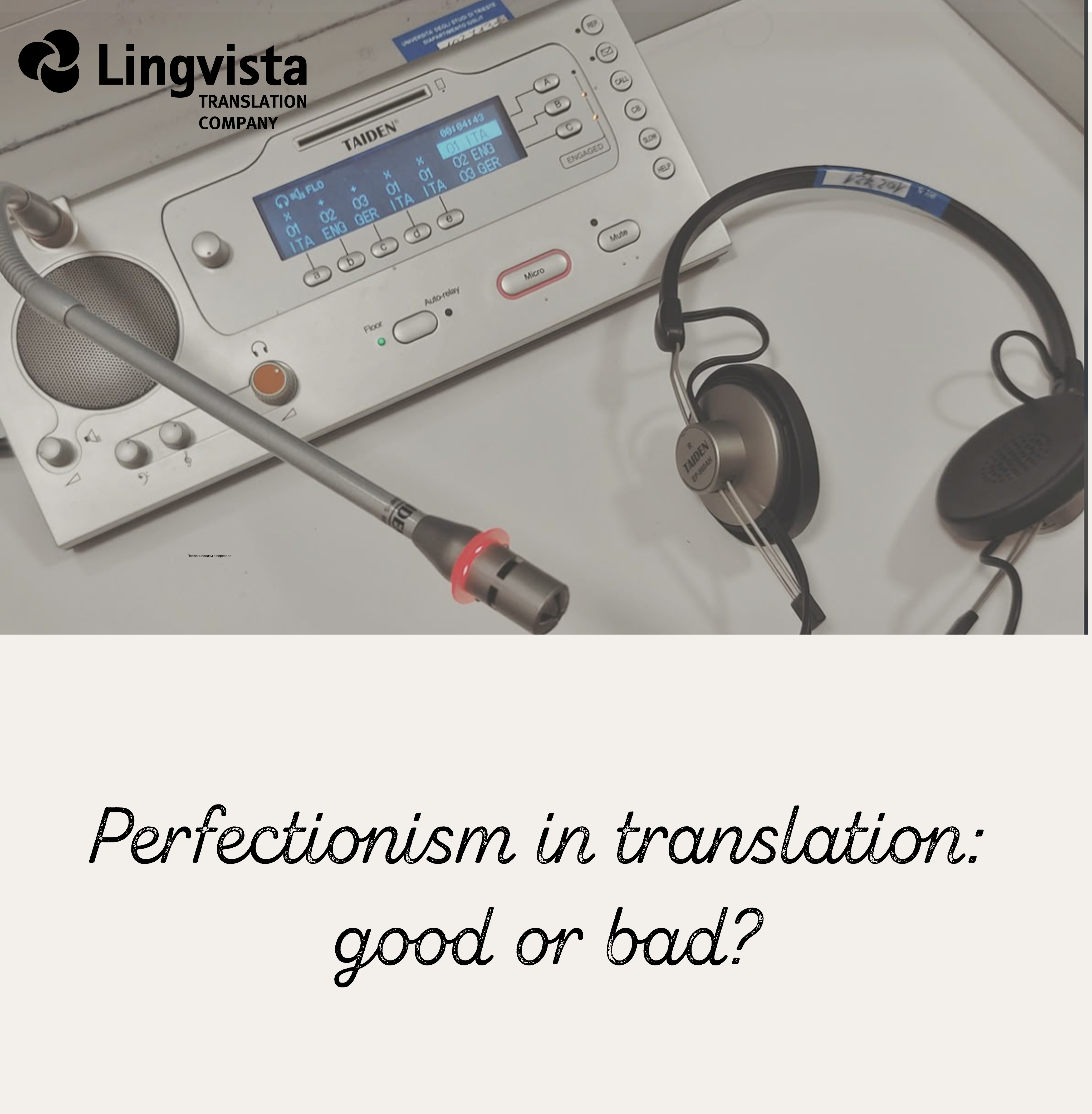For a translator, the ideal situation is when they feel confident that they have done everything within their capability, considering their language skills, subject knowledge, and the translation process.
Perfectionism in translation is the desire to produce a flawless translation. However, an objectively perfect translation does not exist: there is always a range of possible versions, each of which can be considered very good, with some better or worse than others.
It sounds like striving for perfection is obviously good and requires no further discussion. Yet psychologically, the matter is more complex, and much depends on the type of translation — written or oral.
• Written Translation
Imagine a typical A4 page of text, font size 12. A written translator usually needs about 1.5–2 hours for such a page, depending on the topic’s complexity. During this time, the translator not only translates words but also verifies facts, clarifies terminology, edits structure and style, aiming for the highest quality version.
Here, deadlines can sometimes be flexible, and perfectionism becomes a necessity for professional growth.
• Oral Translation
An interpreter works under strict time constraints: for reading and translating the same page, they have only about 6 minutes. In simultaneous interpretation, an instant reaction is required to provide the best possible version that fits the meaning and context, rather than a perfect one.
Here, perfectionism is harmful: overthinking disrupts communication, causes delays, and irritates listeners.
• Conclusions:
– A written translator should aim for the highest possible quality without strict time limits to foster professional development;
– An oral translator should seek optimality within time constraints, sometimes sacrificing details and accuracy for communication speed and flow;
– Perfectionism in oral translation is important during preparation and post-translation analysis, not during the actual live interpreting session.
Understanding this distinction and applying the right approach to each type of translation will enhance your professional effectiveness.


